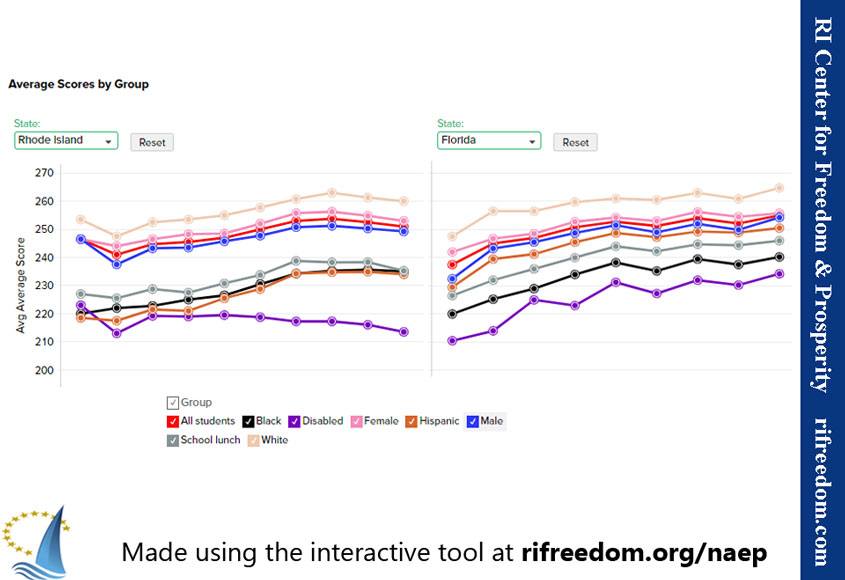The Rhode Island media has its eye closely on the drama of the latest proposed settlement of the pension reform lawsuit — that is, the latest attempt to water down a reform that was nowhere near sufficient in the first place. In contrast, Mike Riley is continuing to point out that the state, the labor unions, and retirees are arguing over free drinks on a sinking cruise ship:
The Rhode Island Pension fund is roughly $8 billion dollars invested in stocks, bonds, fixed income securities, Private equity, Hedge Funds, other alternatives and cash. Im keeping the numbers simple here. The state commission, headed by Raimondo, has stated expected return of the portfolio to be 7.5% annually and this is to be achieved compounded over the next 20 to 30 years. A 7.5% return on $8 billion is $600 million for Fiscal 2015. According to the report that Treasurer Magaziner was handed, the return thus far in Fiscal 2015 shows a portfolio (Fiscal ytd )loss of 0.71% and including expenses a loss of 1.03% . This 1.03 % loss translates to a negative $80 million dollars. The State would need to gain $680 million over the next 5 months to achieve their “expected” return.
Bill Rappleye has picked up that thread on Channel 10, but for the segment, General Treasurer Seth Magaziner spit out a bunch of squid oil to muddy the waters, selectively picking five-year investment returns to make it seem as if the state’s pension fund is doing swimmingly. I noted the problem with this happy talk last month:
The ten-year average investment return is only 6.0 percent, which should be seen as -1.5 percent. And the longest term number provided, back to July 2000, is 4.8 percent, which should be seen as -2.7 percent. …
If the average for the last 14 years was 4.8 percent, then the average for the next 14 doesn’t have to be 7.5 percent, but more like 10 percent, to make up the difference. If we’re already seeing diminishing returns from the Federal Reserve’s quantitative easing policy and President Obama’s binge of trillion-dollar deficits, what are the next 14 years realistically going to look like?
More importantly, I suggested, it should be the state’s general treasurer who is making this case to everybody. It should be Seth Magaziner out in the news saying, “Hey, these negotiations are all well and good, but we may only have a few more years left until this pension reform thing starts to spring new leaks.”
Former Treasurer, now Governor, Gina Raimondo lucked out that the Obama Administration and the Federal Reserve proved to be such believers in stock-market-trickle-down theory. Rather than ease the reins on innovators and working people, they’ve hit the loose-money throttle for the investment market. That’s given the pension fund and the reform a brief period of looking like they might be fine, although as Riley argues, the state managed to do worse than other funds during the bubble’s latest inflation.

